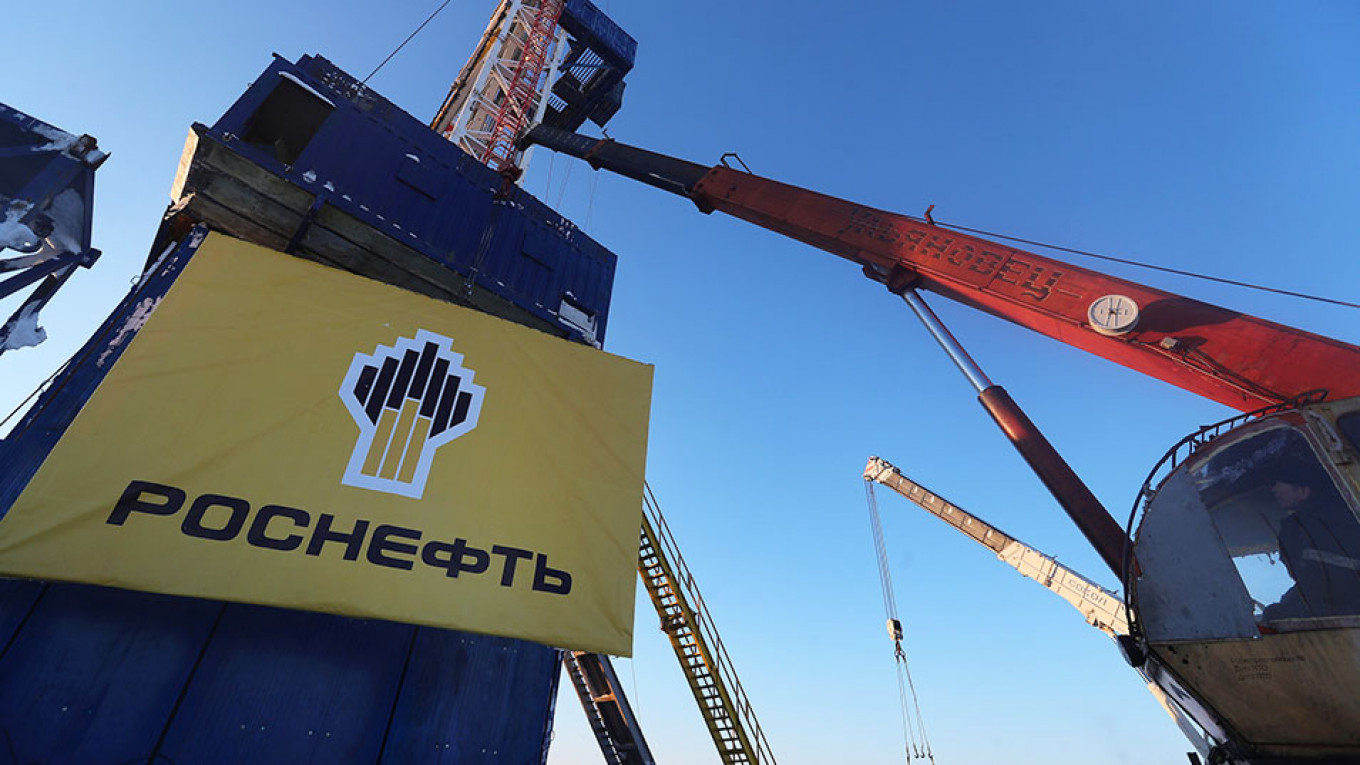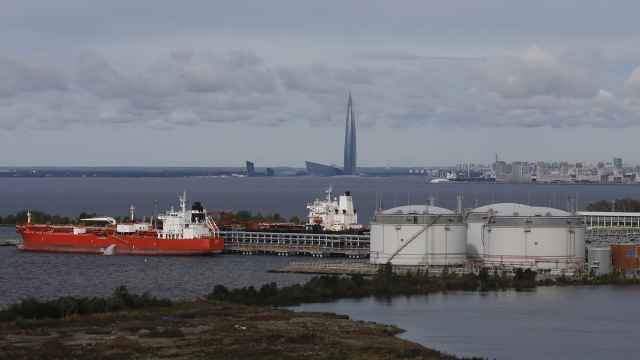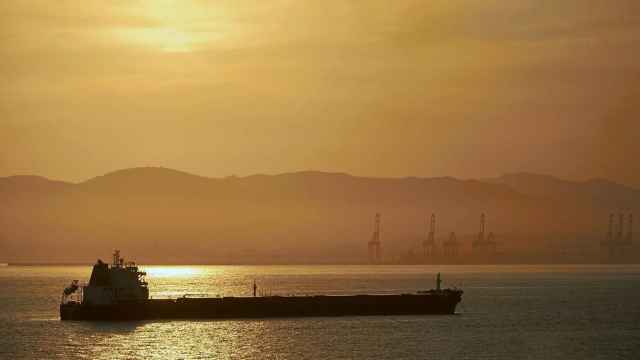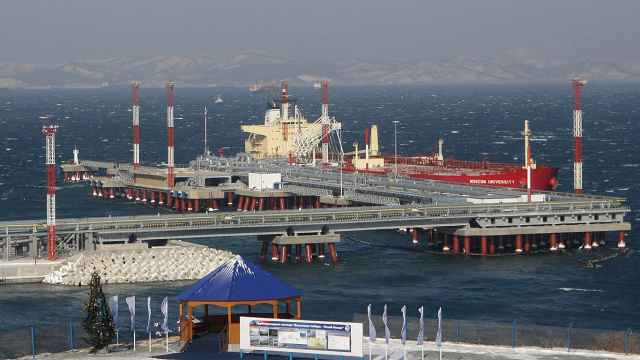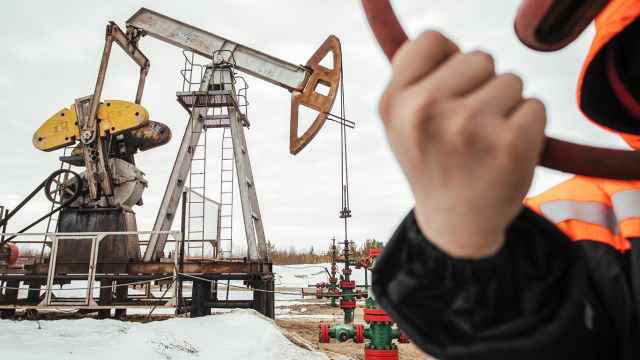The U.S. is weighing whether to sanction Russia’s biggest oil producer, Rosneft PJSC, for maintaining ties with Venezuela’s Nicolas Maduro, though American officials are wary that the move could cause chaos in global oil markets, according to people familiar with the matter.
Officials at the Treasury Department worry that sanctions on Rosneft may drive up prices for oil, the people said. The U.S. has placed heavy economic sanctions on Venezuela as the Trump administration seeks to oust Maduro, its president, but the country’s oil industry continues to function. Crude accounts for 95% of Venezuelan exports and bankrolls Maduro’s regime.
The Trump administration plans to ramp up its pressure on Maduro over the next 30 days, a senior administration official told reporters in a briefing on Wednesday. The U.S. will look “very closely” at potential actions against Rosneft and will “likely take action in the near future on that issue,” National Security Adviser Robert O’Brien said Wednesday at an event hosted by Meridian International Center.
President Donald Trump promised in his State of the Union address on Tuesday “that Maduro’s grip of tyranny will be smashed and broken.” Venezuelan opposition leader Juan Guaido attended the speech and met with Trump at the White House on Wednesday.
A spokeswoman for the Treasury Department didn’t immediately respond to a request for comment and a spokesman for the White House National Security Council declined to comment.
The threat of U.S. sanctions on a large Russian commodities company upended global markets in 2018, when the Trump administration moved against Russian billionaire Oleg Deripaska in retaliation for what Treasury Secretary Steven Mnuchin called “malign activity around the globe” by the Russian government. At the time, Deripaska held a majority stake in United Co. Rusal, the world’s second-largest aluminum producer.
Sanctions were never imposed on Rusal due to repeated waivers by Treasury. But global aluminum prices shot up as much as 20% at one point, and each delay in imposing sanctions caused more turbulence.
In the wake of U.S. sanctions on Venezuela, Russia has become the second-largest source of American oil imports. The nation’s crude and oil product exports to the U.S. climbed to 20.9 million barrels last October, the highest since November 2011, according to U.S. government data.
Rosneft is currently subject to some U.S. market-sector sanctions, although those measures aren’t as far-reaching as the sanctions against businesses associated with the Maduro regime and don’t prevent Rosneft from entering into transactions for Venezuelan oil.
Rosneft has been Venezuela’s main shipper of crude, which goes predominantly to refineries in India and China. The Moscow-based company, controlled by Russian President Vladimir Putin’s government, has loaned $6.5 billion to PDVSA in exchange for oil.
Venezuelan oil sales fell to a 34-year-low in 2019 after sanctions cut off trade with the U.S., until then the country’s biggest customer.
Rosneft also supplies gasoline and diesel in exchange for crude oil. Subsidized gasoline helps Maduro keep his hold on power in a country suffering from inflation, food shortages and a widespread humanitarian crisis. Gasoline is so cheap that Venezuelans can fill a tank with less than $1.
As of November 2019, Rosneft’s five joint ventures with PDVSA, the Venezuelan state-owned oil company, pumped an average of 84,700 barrels a day, compared to 158,000 in the same month a year before, according to data compiled by Bloomberg. A jointly run upgrader of heavy crude oil has been halted since mid-2019 due to operational issues.
A Message from The Moscow Times:
Dear readers,
We are facing unprecedented challenges. Russia's Prosecutor General's Office has designated The Moscow Times as an "undesirable" organization, criminalizing our work and putting our staff at risk of prosecution. This follows our earlier unjust labeling as a "foreign agent."
These actions are direct attempts to silence independent journalism in Russia. The authorities claim our work "discredits the decisions of the Russian leadership." We see things differently: we strive to provide accurate, unbiased reporting on Russia.
We, the journalists of The Moscow Times, refuse to be silenced. But to continue our work, we need your help.
Your support, no matter how small, makes a world of difference. If you can, please support us monthly starting from just $2. It's quick to set up, and every contribution makes a significant impact.
By supporting The Moscow Times, you're defending open, independent journalism in the face of repression. Thank you for standing with us.
Remind me later.


